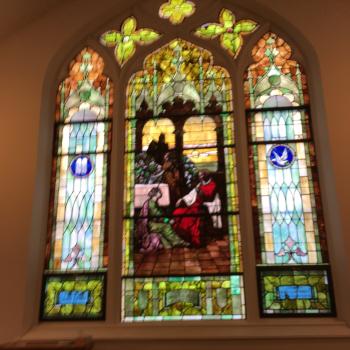In the recent opening session of the “Mexico/Holy See Colloquium on Migration and Development”, the Vatican Secretary of State, Cardinal Pietro Parolin, read a message from Pope Francis as well as addressing the colloquium himself. Both spoke of the need for a cultural conversion, and both specifically mentioned the United States and the particular vulnerability of the waves of children crossing its border. Their messages are both prophetic and nuanced, not dismissing rule of law but balancing the need for just and life-affirming public policies as well as deeper conversion, reminding us with a moral authority no policy-maker can claim that the fundamental issue from a Christian perspective is one of human dignity.
From the Holy Father’s message:
Globalisation is a phenomenon that challenges us, especially in one of its principal manifestations which is emigration. It is one of the ‘signs’ of this time that we live in and that brings us back to the words of Jesus, ‘Why do you not know how to interpret the present time?’. Despite the large influx of migrants present in all continents and in almost all countries, migration is still seen as an emergency, or as a circumstantial and sporadic fact, while instead it has now become a hallmark of our society and a challenge.
It is a phenomenon that carries with it great promise and many challenges. Many people forced to emigrate suffer, and often, die tragically; many of their rights are violated, they are obliged to separate from their families and, unfortunately, continue to be the subject of racist and xenophobic attitudes.
Faced with this situation, I repeat what I have affirmed in this year’s Message for the World Day of Migrants and Refugees: ‘A change of attitude towards migrants and refugees is needed on the part of everyone, moving away from attitudes of defensiveness and fear, indifference and marginalisation – all typical of a throwaway culture – towards attitudes based on a culture of encounter, the only culture capable of building a better, more just and fraternal world.’
And similar themes from Cardinal Parolin:
In a radical way, Christianity has stated from the very beginning that we are all free, we are all equal, we are all brothers. As a result, the dignity of the person derives not from their economic situation, political affiliation, level of education, immigration status or religious belief. Every human being, for the very fact of being a person, possesses a dignity that deserves to be treated with the utmost respect….
It is clear that the phenomenon of migration cannot be resolved solely by legislative measures or by adopting public policies, good though they may be, and far less so solely through the deployment of the forces of security and order. The solution to the problem of migration requires a profound cultural and social conversion that enables a closed culture to transform into a ‘culture of welcome and encounter’.
In this context, the Church has always been, and will continue to be, a loyal collaborator. … By definition, being Catholic means being universal and transnational. Its message is not confined to the private lives of the faithful, but instead seeks conversion, expanding and reaching towards paths of culture and social justice, since it is not possible to define oneself as Christian and then turn one’s back on justice and fraternity, also with non-believers.
In a social atmosphere where nearly every human problem becomes politically charged and obscured by the constant temptation to divide and dichotomize full solutions, we need this reminder, spoken from the particularly catholic perspective of our “universal and transnational” Church, of the reverence for all human life and dignity – especially where vulnerable – that is at the heart of our faith.
May we be converted to such reverence, to become leaven for a broader social conversion.











